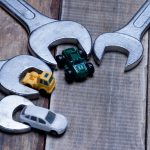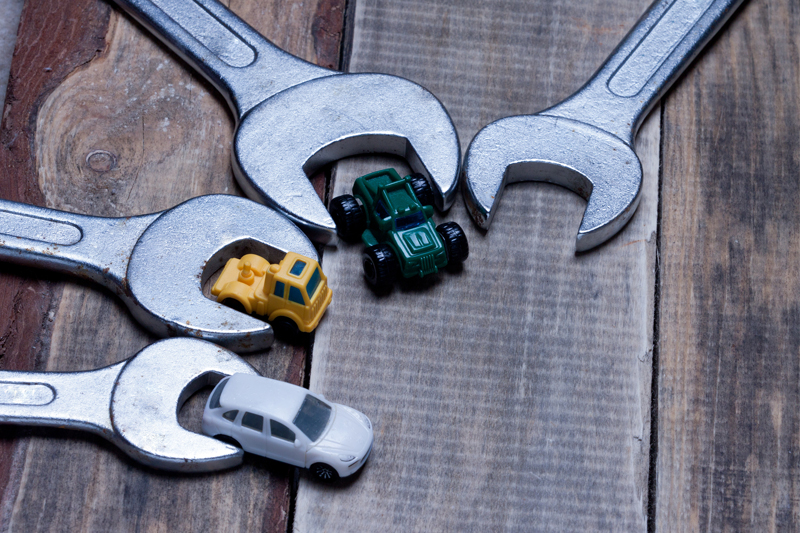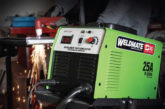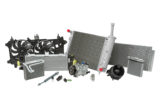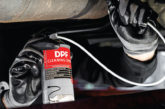Neil Pattemore examines whether it’s still possible, in today’s complex repair market, to turn your hand to any vehicle that rolls into the forecourt.
The concept of aftermarket dates back to the village blacksmith, who started repairing new-fangled motor cars at the beginning of the last century, back when authorised repairers had not been invented. This meant that these blacksmiths had to develop new skills to work on the new technology and started the premise of being able to work on anything that came through the door. Over the last century, this technology has evolved at an exponential rate – until today, where it is now possible to connect cars to diagnostic computers, and by simply pressing a few buttons, be able to repair a fault.
It would be stating the bleeding obvious to say that modern cars are becoming even more complicated, with ever increasing levels of sophistication and burgeoning software- driven functionality, but with a decreasing number of electronic control units (ECUs), as the vehicle manufacturers reduce costs and complexity by implementing more than one system into a single ECU. The modern car is no longer a ‘PC on wheels’, but is becoming a ‘server on wheels’. Mechanical skills have become more electronically biased, and there is an increasing demand for more software and IT-centric skills in the workshop.
So, as a good independent workshop in today’s automotive sector, can you still realistically work on any car that comes through your door? From a business perspective, I would suggest not. Of course, you could argue that anything is possible; it is only a question of time and resource, but that is exactly the issue.
There are a number of reasons why you should not consider working on anything that comes through your door, even though this might sound contradictory to the basic principle of attracting as many customers as you can to fill your workshop with, and selling every possible workshop hour. The issue now is attracting the right type of customer, or vehicle, so that you can continue to generate a profit.
Every modern workshop will have invested in one or more diagnostic tools. It would be impossible to run a vehicle repair business today without these electronic toolboxes, but as vehicle complexity increases, new issues arise. Working on the assumption that ‘I know what that problem is – I’ve seen it a thousand times before’ no longer applies, and today’s workshop can no longer rely on past experience to identify what is wrong, or indeed the best method of repair.
A new approach is needed to address how to handle this ever-increasing vehicle complexity, otherwise it will become ever more challenging to make a profit from diagnosing and repairing vehicles. This not only involves how to approach the whole subject of diagnostics – as just relying on the vehicle’s on-board diagnostics is certainly not sufficient – but understanding the components and functionality of the system of the vehicle, and how they interact with other systems within the overall vehicle architecture. This creates two fundamental key issues:
■ Having a diagnostic tool that is capable of communicating and analysing the vehicle, as well as its systems.
■ Having the training/technical expertise to understand the functionality of the system, and the correct process to test and diagnose the suspected fault.
Both of these issues require increasing investment of time and money. If you multiply this for (potentially) any vehicle that comes through the door, then the costs will significantly outweigh the possible return on investment.
To put this into context, a master technician working in a specific authorised repairer is not only trained to work on that manufacturer’s vehicles, but must pass technical tests to become certificated to do so. For some vehicle manufacturer models this can mean up to 12 weeks of training, just to qualify to be able to work on one vehicle. Obviously, for an independent workshop, this level of training would not be justifiable or affordable for just one vehicle type.
Could the Euro 5 legislation, which provides access to all vehicle repair and maintenance information (RMI) for Euro 5 vehicles, supply an answer? In some ways it could, but remember that access to this RMI is not free, so although it may help, it will be at an additional cost for each job.
Ultimately, the question is therefore: Can I afford to work on any type of vehicle? If a customer with a top-of-the-range vehicle rang to book their vehicle in for repair, would you say yes? If you did, then the risk of having to take too much time to actually diagnose and repair the fault, or that the repair would not be conducted correctly, would mean that it would be impossible to make a profit.
“The answer lies in how to minimise both the costs and the risks and still complete the job profitably – and this almost certainly means an increasing level of specialisation.”
This leaves the question that many independent workshops need to consider: What can I work on and still be confident that I can make a profit? The answer lies in how to minimise both the costs and the risks and still complete the job profitably – and this almost certainly means an increasing level of specialisation.
The obvious route is to choose a limited number of vehicle manufacturers in which to specialise. This could be French, German or Japanese. Specialisation in certain vehicle manufacturers would also work with the Euro 5 legislation, which dictates that vehicle manufacturers must offer annual contracts for unrestricted access to RMI (e.g. Ford currently charges €2,600 per year, while Vauxhall/Opel is €4,400 per year). Alternatively, specialisation could be into a system, such as clutches, or gearboxes.
The final outcome as this scenario develops is that good independent workshops will start to look and act like smaller versions of the vehicle manufacturers’ authorised repairers, and have a cost base that is also similar. At this point, independents should also think, work and market themselves at the same level. The world of vehicle repair is changing, and independent repairers need to diagnose their own business to ensure that they remain profitable.

